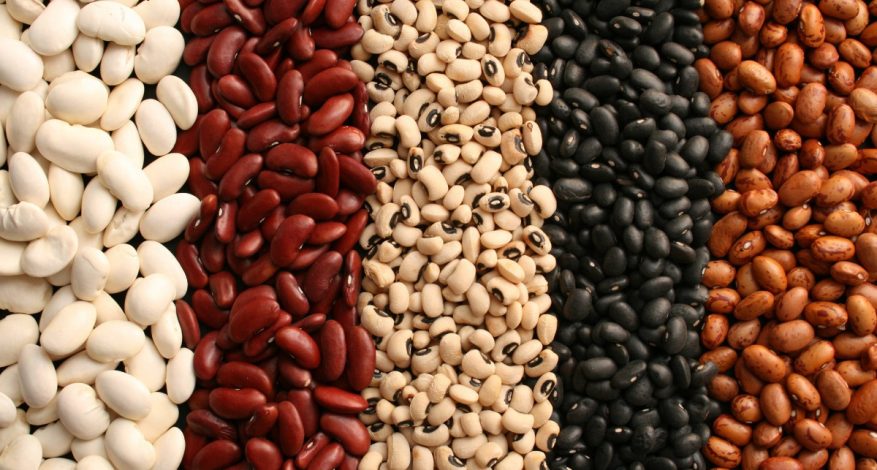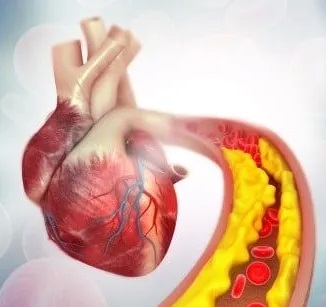By Adebowale Bello. B.Tech Microbiology. Freelance Health Writer. Medically reviewed by the DLHA team

A small sample of varieties of beans in Africa. Image credit: CEDO
In many African cultures, beans are a staple food, known for their affordability and versatility. Although they are often associated with unwanted gas, the health benefits of beans far outweigh the occasional digestive discomfort. As Africans search for accessible ways to improve their diets and health, beans are an ideal, nutrient-dense solution.
Beans are unique because they provide three essential categories of nutrition: protein, complex carbohydrates and vegetables. According to Dr. Mopelola Adeyemo, a clinical nutritionist at UCLA Health, beans are in a league of their own due to these three benefits.
For such a small food, beans contain a substantial amount of essential vitamins and minerals. For instance, a half-cup of black eyed beans contains 8 grams of fibre—about 25% of your daily recommended intake.
Even though fibre has several health benefits such as weight management, most Africans do not consume enough fibre in their diets, which may lead to various health problems such as constipation and increased cholesterol.
Apart from providing fibre, beans also provide 8 grams of plant-based protein per serving. While this may seem low compared to animal proteins like beef, which has about 22 grams in a 3-ounce serving, beans offer a major advantage—low saturated fat and no cholesterol. For many Africans who are seeking ways to reduce meat consumption due to health or economic reasons, beans are a perfect alternative.
Beans are also loaded with important minerals, including potassium, copper, iron, magnesium and vitamin B6. These nutrients play crucial roles in managing blood pressure, boosting energy and enhancing overall health.
For instance, the potassium in beans helps balance out the effects of sodium, which can cause high blood pressure—a common issue in Africa, especially in urban areas where processed foods are readily consumed.
One of the biggest reasons Africans shy away from eating beans is the fear of gas and bloating. This is because of the high fibre content in beans which can be difficult for the body to digest, especially if you’re not used to eating enough fibre. However, this issue can be managed with a few simple strategies such as eating smaller portions, soaking your beans overnight or adding digestive herbs like ginger to ease digestion.
The benefits of beans go beyond basic nutrition. In a continent where diabetes and cardiovascular diseases are on the rise, cooking beans could serve as an inexpensive yet effective preventive measure.
Here are some of the key health benefits beans provides:

Image showing cholesterol deposits in the lining of blood vessels. This can cause damage to heart health.
Chronic heart disease has become an increasing concern across Africa due to rising rates of hypertension, poor diets and urbanization.
Beans are rich in soluble fibre, which binds to cholesterol in the digestive system and removes it from the body before it can enter the bloodstream. By eating beans regularly, individuals can reduce their cholesterol levels, thereby lowering the risk of heart disease and stroke.
In many African countries where access to healthcare and medications for managing cholesterol may be limited, including beans in your diet is a natural way to support cardiovascular health and reduce the need for costly interventions.

Image showing finger prick test for blood sugar.
Diabetes is another growing health challenge across Africa, especially in urban areas where processed foods and refined carbohydrates are consumed more frequently.
However, the combination of complex carbohydrates and fibre in beans makes them excellent for controlling blood sugar levels. Unlike refined carbohydrates, which are broken down quickly and cause spikes in blood sugar, beans digest slowly due to their high fibre content.
This slow digestion prevents rapid rises in blood sugar levels, making beans especially beneficial for individuals with type 2 diabetes or those at risk of developing the condition.
So, if you're managing diabetes or aiming to prevent it, beans are a reliable go-to meal.
.jpg)
Image showing the human digestive system.
Beans are packed with fibre which adds bulk to stool, thereby helping it move smoothly through the digestive tract. This not only prevents constipation but also reduces the risk of other digestive issues such as irritable bowel syndrome (IBS) and diverticulosis
By regularly including beans in your diet, you can maintain a healthy digestive system and reduce the discomfort and complications associated with poor gut health.

Image showing the torso of an obese man.
Obesity is becoming a significant public health issue in Africa, because sedentary lifestyles and consumption of processed foods are common. Beans, due to their combination of fibre and protein, can be an effective tool for managing weight.
Both fibre and protein help you feel full for longer periods, reducing the likelihood of overeating and snacking on less healthy foods. This satiety effect is particularly helpful for individuals trying to lose or maintain weight.
Studies have shown that people who regularly consume beans tend to have lower body weights and smaller waist circumferences compared to those who do not.
Cartoon image showing a common location for colon cancer in the digestive system.
Colon cancer is a leading cause of cancer-related deaths globally and Africa is no exception. However, research suggests that the high fibre content in beans may help protect against colon cancer by promoting a healthy digestive system.
Fibre helps cleanse the colon by moving waste products more efficiently through the digestive system. In doing so, fibre reduces the time harmful substances spend in contact with the colon lining, lowering the risk of developing cancerous cells.
For Africans seeking to reduce their cancer risk, eating a diet high in fibre, such as one that includes beans, can support colon health and is a practical strategy to potentially lower cancer risk.
Beans are truly nature's perfect food—packed with essential nutrients, affordable and versatile. As Africans continue to face growing health challenges related to heart disease, diabetes, and obesity, incorporating more beans into daily meals offers an accessible, nutrient-rich solution.
So, the next time you’re planning a meal, think beans and make it a regular part of your diet—your body will thank you.
Source: UCLA news release. Available from here
Published: October 17, 2024
© 2024. Datelinehealth Africa Inc. All rights reserved.
Permission is given to copy, use and share content for non-commercial purposes without alteration or modification and subject to attribution as to source.
DATELINEHEALTH AFRICA INC., is a digital publisher for informational and educational purposes and does not offer personal medical care and advice. If you have a medical problem needing routine or emergency attention, call your doctor or local emergency services immediately, or visit the nearest emergency room or the nearest hospital. You should consult your professional healthcare provider before starting any nutrition, diet, exercise, fitness, medical or wellness program mentioned or referenced in the DatelinehealthAfrica website. Click here for more disclaimer notice.